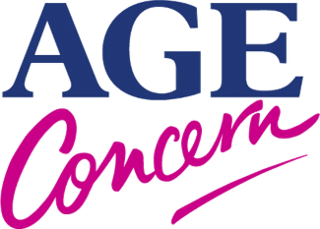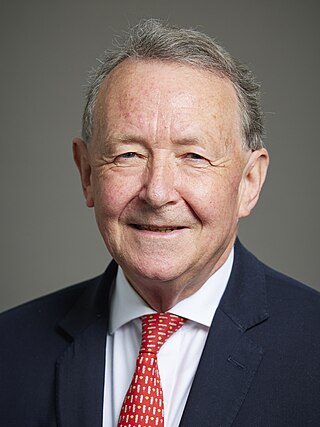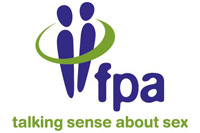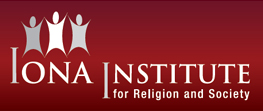Related Research Articles
Samaritans is a registered charity aimed at providing emotional support to anyone in emotional distress, struggling to cope or at risk of suicide throughout the United Kingdom and the Republic of Ireland, often through its telephone helpline. Its name derives from the biblical parable of the Good Samaritan, although the organisation itself is not religious.

Age Concern is the banner title used by several charitable organisations specifically concerned with the needs and interests of all older people based chiefly in the four countries of the United Kingdom.

David Patrick Paul Alton, Baron Alton of Liverpool, KCSG, KCMCO is a British-Irish politician, formerly a Member of Parliament for the Liberal Party and later Liberal Democrat who has sat as a crossbench member of the House of Lords since 1997 when he was made a life peer. Alton is also known for his human rights work including the co-founding of Jubilee Action, the children's charity, and serves as chair, patron or trustee of several charities and voluntary organisations.
Humanists UK, known from 1967 until May 2017 as the British Humanist Association (BHA), is a charitable organisation which promotes secular humanism and aims to represent "people who seek to live good lives without religious or superstitious beliefs" in the United Kingdom by campaigning on issues relating to humanism, secularism, and human rights. It seeks to act as a representative body for non-religious people in the UK.

Citizens Advice is a British independent organisation specialising in confidential information and advice to assist people with legal, debt, consumer, housing and other problems in the United Kingdom.

Migrant Help is a United Kingdom-based national charity that has been supporting migrants since 1963.
Islamic Relief Worldwide is a faith-inspired humanitarian and development agency which is working to support and empower the world's most vulnerable people.

The National Lottery Community Fund, legally named the Big Lottery Fund, is a non-departmental public body responsible for distributing funds raised by the National Lottery for "good causes".
Tearfund is an international Christian relief and development agency based in Teddington, UK. It currently works in around 50 countries, with a primary focus on supporting those in poverty and providing disaster relief for disadvantaged communities.
Wales Council for Voluntary Action (WCVA) is the national membership organisation for the third sector and volunteering in Wales. Its aim is to work towards 'A future where the third sector and volunteering thrive across Wales, improving wellbeing for all'.

The Family Planning Association (FPA) was a UK registered charity working to enable people to make informed choices about sex and to enjoy sexual health. It was the national affiliate for the International Planned Parenthood Federation in the United Kingdom. Founded in 1930, the FPA celebrated its 80th anniversary in 2010. Its motto was "Talking sense about sex". The charity was placed into liquidation on 15 May 2019, but the FPA name continues as a limited company selling sexual health resources.

Lolek CLG, operating under the business name the Iona Institute, is an Irish, socially conservative organisation that advocates the advancement and promotion of the Christian religion and its social and moral values. It has been frequently described as a Catholic pressure group. Founded by columnist David Quinn, it was launched publicly in 2007.
The Association of Women for Action and Research (AWARE) is a not-for-profit organisation that advocates for gender equality and provides critical support services for women in Singapore. It is a registered charity with Institute of Public Character status.

Pro Life Campaign (PLC) is an Irish anti-abortion advocacy organisation. Its primary spokesperson is Cora Sherlock. It is a non-denominational organisation which promotes anti-abortion views, and opposes abortion in all circumstances, including cases of rape and incest.

Abortion-rights movements, also self-styled as pro-choice movements, are movements that advocate for legal access to induced abortion services, including elective abortion. They seek to represent and support women who wish to terminate their pregnancy without fear of legal or social backlash. These movements are in direct opposition to anti-abortion movements.
Family & Life is an Irish anti abortion organisation founded in 1996.
The Abortion Rights Campaign (ARC) is an Irish abortion rights group. The group's goal is the introduction of free and legal abortion in Ireland and Northern Ireland. Prior to May 2018, the group campaigned for the repeal of the Eighth Amendment of the Irish Constitution, which was achieved with the passing of the Thirty-Sixth Amendment 2018. The ARC also campaigns for the Northern Ireland Assembly on behalf of abortion legislation and "to ensure the health of women in pregnancy is protected in line with international human rights standards".
The Citizens' Assembly is a citizens' assembly established in Ireland in 2016 to consider several political questions including the Constitution of Ireland. Questions considered include: abortion, fixed term parliaments, referendums, population ageing, and climate change. Over 18 months a report is produced on each topic. The government is required to respond officially to the reports in the Oireachtas (parliament); as of 9 April 2019 responses have been given on three of the five topics.
Every Life Counts is a support network for families whose child is diagnosed with a life limiting condition in the Republic of Ireland. They campaign for the creation of a perinatal hospice in Ireland, as an opposition to abortion in cases of life limiting conditions, claiming it is not a "pathway to healing", and that abortion causes depression and distress.
Termination for Medical Reasons (TFMR) is a campaign and support group seeking to change the law in Ireland to allow terminations in cases of fatal foetal abnormalities. Amanda Mellet is a founding member. They campaign for better services for people who experience fatal foetal abnormalities. In 2016 they welcomed the Irish government's new guidelines on bereavement counselling for grieving parents.
References
- ↑ "How This Woman Helps Hundreds of Pregnant Women in Ireland Access Safe, Legal Abortions". Cosmopolitan. 18 May 2015. Retrieved 15 December 2016.
- ↑ "List of Advocacy Groups, Interest Groups, other Representative Organisations and Political Parties Submissions to the Citizens' Assembly on the Eighth Amendment of the Constitution" (PDF). Citizens' Assembly. 12 January 2017.
- ↑ "Abortion Support Network: 'In a perfect world, our phone would never ring'". The Irish Times. Retrieved 24 May 2018.
- ↑ "Pro-choice activists launch abortion initiative in Poland". The Guardian. Retrieved 12 October 2019.
- ↑ "Instagram". www.instagram.com. Retrieved 6 January 2025.